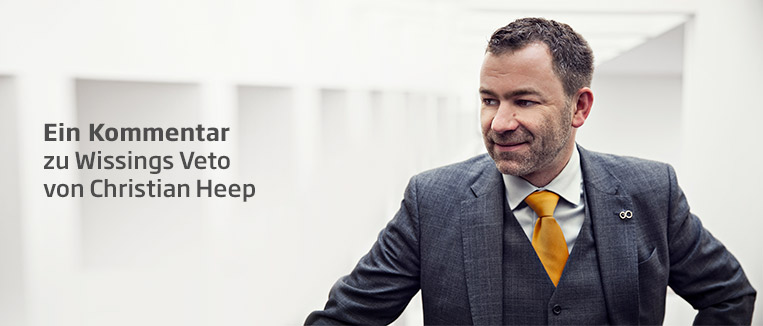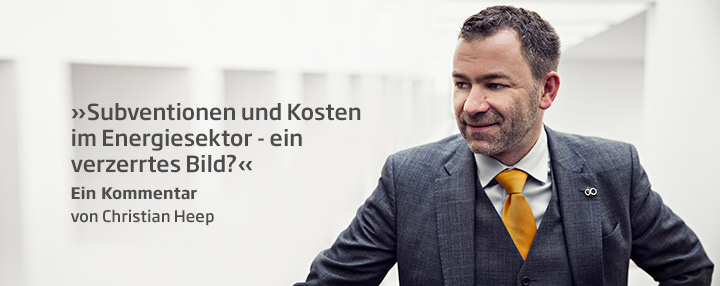
A commentary on Wissings Veto
09.03.2023 / Column / Commentary by Christian Heep
Germany’s confirmation of the EU decision to ban new car registrations from 2035 was actually considered a formality. Federal Transport Minister Wissing’s veto now makes it clear that he does not really believe in clean and sustainable electromobility. It is also an admission that the mobility transition is not being seriously supported, as would be necessary to achieve the agreed environmental and climate targets. Instead, the necessary transformation that is urgently needed to shape the future of new mobility in a sustainable way is being delayed.
The decisions of the EU and the German government must be made with the long term in mind. We must not allow influences from the fossil fuel industry to determine our future. We need a clear direction and a consistent, reliable policy that promotes the transition to emission-free mobility.
It is now to be feared that the Federal Minister of Transport’s behaviour will weaken the eMobility market in Germany. This would once again damage the country’s image as a technology leader and portray Germany as an unreliable negotiating partner. Such a decision could also set a bad example for other countries that are in favour of environmentally friendly mobility. It is a scandal if the minister pursues a one-sided clientele policy that is not in the interests of climate protection and the energy transition.
eFuels should only be used on a transitional basis and, if possible, only for the remaining fleet and should not be seen as a permanent solution, as they are not clean and environmentally friendly per se. Primary energy consumption, the reduction of which is also one of the European climate protection targets, energy efficiency and general energy requirements must also be taken into account. Furthermore, it should not just be about the automotive industry, but also about the consequences for the business location as a whole. Jobs and added value should be preserved and secured in the long term to ensure the future viability of the country. This ban on registrations must therefore be seen as an important milestone in the mobility turnaround and climate protection and must not be prevented. It ensures that the car industry can focus on the development of the future.
It is therefore important that the German government and Minister Wissing in particular implement the EU resolutions and agreements required to promote e-mobility. Politicians must make a clear commitment to electromobility. We must work towards a sustainable, clean and innovative mobility market that meets climate protection targets. This also means that the automotive industry must introduce new technologies more quickly and integrate the different modes of transport. This is the only way we can achieve the transition to emission-free new mobility in Germany and at the same time make a contribution to a sustainable business location. The ban on new registrations for combustion engines is an important part of this path, which was already agreed between the EU Parliament and the member states in October 2022. It is essential that the Federal Minister of Transport changes his destructive attitude and finally pushes ahead with the necessary changes – also in his other areas of responsibility.









